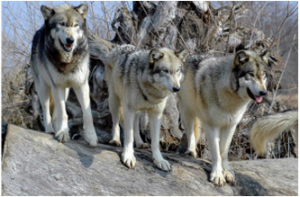1) OSPCA Act
- On November 18, 2008 the OSPCA Act was updated, for the first time since its enactment in 1919 by passing of the Provincial Animal Welfare Act – Bill 50.
- It now includes the following alterations:
- It is a provincial offence to cause or permit any animal to be distressed.
- The OSPCA has the police power to inspect animal facilities, without a warrant, to ensure that they comply with the newly established animal care standards. If they are not in compliance, the OSPCA has the power to confiscate the animals.
- The punishments vary, but include fines (ranging from hundreds to thousands of dollars), and prohibition orders (violators may be prohibited from owning animals).
2) Ontario Regulation 60/09 – Standards of Care
- New standards of care for all animals were passed under the OSPCA Act in 2009, which include specific requirements for captive wildlife.
- These include standards regarding food, water, medical attention, physical safety, ability to exercise and move naturally, cleanliness, appropriate enclosures and structures or material inside, and the stimulation of natural movement and behaviour.
3) Bill 125 – Exotic Wildlife in Captivity Act
- Bill 125 – Exotic Wildlife in Captivity Act was presented by Dave Levac (a member of provincial parliament), and the first reading was carried in 2010. However, no date has been set for its second reading, and three readings are required for a bill to be passed.
- If passed, it will require the mandatory licencing of those who own captive exotic wildlife, and will prohibit the breeding of animals without a license.
4) CAZA Accreditation Program
- In order to become a CAZA member, institutions must adhere to standards regarding nutrition, enclosures, security, enrichment, exercise, veterinary care, and visitor contact.
- CAZA members are inspected by zoological experts in operations, animal management, and veterinary medicine every 5 years.
- Although CAZA accreditation is not mandatory under the law, it does serve to enhance the public’s confidence in a zoo or aquarium, which results in an increase in business for the CAZA members. In addition, accreditation makes establishments eligible for funding and grants from foundations and corporations, and exempts them from some government requirements.
- Only 8 of the 52 public animal displays in Ontario are CAZA certified.
